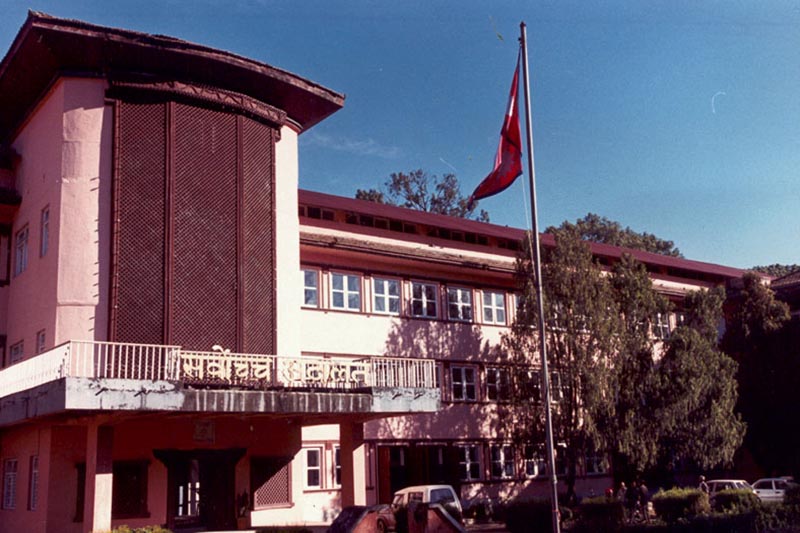SC rules its writ runs on military court
Kathmandu, January 30
In a landmark verdict, the Supreme Court has ruled that all the courts, including military courts, are under its jurisdiction and military courts’ jurisdiction is limited to offences listed in the Army Act.
This was stated today in the full text of the verdict passed on June 19 by the single bench of Justice Cholendra Shumsher JB Rana in a habeas corpus writ petition filed on behalf of armyman Krishna Bahadur Magar.
According to the case details, Magar, another armyman Hari Bahadur Dhakal and a civilian Dil Bahadur Dhakal were arrested by Kathmandu police on January 31 with two rhino horns and were prosecuted under National Parks and Wildlife Conservation Act.
Magar filed the petition after he was sent to judicial custody on March 14, claiming that as per Section 66 (1) of the Army Act, military court had the jurisdiction in all offences committed by military personnel except the crimes of rape and murder. On March 4, the Judge Advocate General’s Department of NA had written to the district court presenting the same argument.
The SC rejected the petitioner’s argument, observing that the constitution had placed the Supreme Court above all the courts, including military court and the latter should obey its directives.
It stated that unlike the Constitution of the Kingdom of Nepal, which had excluded the military court from SC’s jurisdiction, the Interim Constitution of Nepal and the current constitution kept the military court under its ambit.
Our constitution does not allow granting of judicial powers to a body which cannot dispense its duties in independent, impartial and competent manner. The SC stated that Nepal guaranteed the right of fair hearing principles that could only be upheld by an independent, impartial and competent court.
The SC quoted UN Updated Principles for the Protection and Promotion of Human Rights Through Action to Combat Impunity, which states, “The jurisdiction of military tribunals must be restricted solely to specify military offences committed by military personnel, to the exclusion of human rights violations, which shall come under the jurisdiction of the ordinary domestic courts or, where appropriate, in the case of serious crimes under international or internalised court.”
The SC observed that all the specialised courts also needed to respect people’s right to fair hearing.
“Democracy expects judicial bodies to work in an independent, impartial, competent, transparent and responsible manner. Any privilege must be sanctioned by the law. Discipline may be important for the army, but justice cannot be less important,” the apex court observed, adding, “If a thing is not a matter of military control or direction, then it must be accepted that such a thing should be adjudicated by an ordinary court.” It stated that people should also feel that army personnel were not above the law.
The SC added that if the military court was given jurisdiction over offences committed by military personnel not related to military service, that would be against democracy, the rule of law, civil rights and supremacy of the civilian government.
The SC observed that the NA did not claim that Magar’s offence was among the list of offences mentioned in the Army Act.
The case is under Kathmandu District Court’s jurisdiction as per the provision of National Parks and Wildlife Conservation, and therefore, the district court’s decision to refuse the army’s argument, which was endorsed by Patan High Court, was fully consistent with the constitution and the laws, added the SC.






